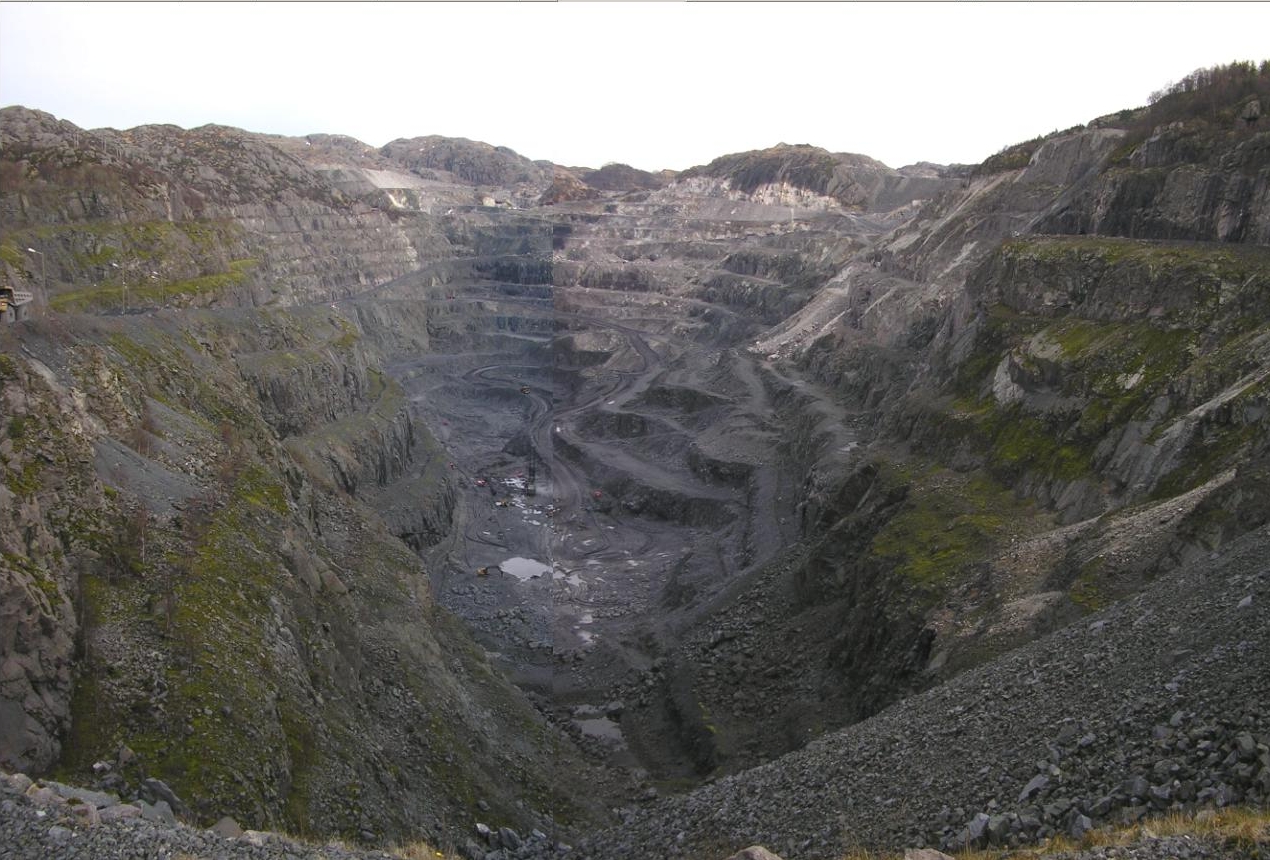Ya know, this whole "Green" thing ticks me off.
First of all, absolutely none of it is sustainable in the least. The way I look at it, the societies of North America before 1492 were more or less sustainable. Yes there were several booms and busts, but they were mostly localized and recovered from them quickly. I would have to say that the way the Northeast tribes, for instance, were living was sustainable over the long term. They even had a policy to consider the impact of their decisions on the seventh generation after them, we worry about next quarter.
Green economy or green growth they probably both mean, I would imagine, solar panels. If you think solar panels are in any way sustainable, you have another think coming. I was just reading about how solar panels are made and one of the ingredients is boron. Here's a nice, sustainable boron mine:

How "green" is that?
And oh yeah, it was also phosphorus, too. Hey, don't we need that stuff to like, uh, fertilize our food? I keep hearing there is not that much of that to go around. You wanna recharge your phone or eat?
And then, titanium dioxide.

But ok, since I'm getting bored, you must be too, so here's the rest of the process:
The solar module consists of the silicon semiconductor surrounded by protective material in a metal frame. The protective material consists of an encapsulant of transparent silicon rubber or butyryl plastic (commonly used in automobile windshields) bonded around the cells, which are then embedded in ethylene vinyl acetate. A polyester film (such as mylar or tedlar) makes up the backing. A glass cover is found on terrestrial arrays, a lightweight plastic cover on satellite arrays. The electronic parts are standard and consist mostly of copper. The frame is either steel or aluminum.
Read more:
http://www.madehow.com/Volume-1/Solar-C ... z3g19ZWrvB
Sounds to me like there's fossil fuel components in there, and some standard metals. Do I need to post an iron or aluminum mine picture to make my point? Please note that without the extra energy background of fossil fuels, those mines
would not exist. Not to mention all the GHG emitted during the mining and manufacturing processes probably cuts in half the "green" claims of solar panels.
Oh, I forgot to add, the silicon has to be refined to 100% pure by heating it up to 2400F... I hope you don't think they're using solar for that heat. More GHGs... green my posterior.
I'm sorry, I think that if you use it and it doesn't grow from the ground every year or so, it's just not sustainable.
Ask me where I got this attitude, go ahead...
I won't keep you in suspense. It's because I've posted and lurked (and read many, many, many of the excellent links you folks supply) for 10 friggin' years.
Thanks for that, by the way.
![adora [smilie=adora.gif]](https://peakoil.com/forums/images/smilies/adora.gif)



![adora [smilie=adora.gif]](https://peakoil.com/forums/images/smilies/adora.gif)
 )
)